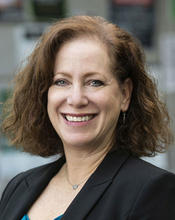- February 22, 2023
Human trafficking is a global crisis of overwhelming scope. Fortunately, anti-trafficking organizations can use AI to predict the criminals’ next moves–with the help of a George Mason University professor.
- February 2, 2023
Thanks to TikTok, Twitter, Instagram et al, we are living in the age of social influence. But how can influence be harnessed to make the world a better place? Yun Young Hur, assistant professor of information systems at George Mason University School of Business, explores that question in a recently published paper in Information Systems Research.
- January 31, 2023
Research by Mason Accounting Professor Bret Johnson, a former SEC staff accountant and academic fellow, shows how seemingly mundane intra-agency policies can have unintended effects that benefit Wall Street over Main Street.
- December 13, 2022
Managers often struggle to motivate their teams, but that could be because they’re looking in the wrong place. Mason School of Business professor Shora Moteabbed believes that how employees relate to one another on a one-to-one basis is key to understanding—and influencing—workplace behavior.
- December 8, 2022
Marketing professor Tarun Kushwaha’s recent research finds that the effectiveness of brands’ growth strategies can be correlated with the state of the economy. Analyzing 17 years of data on U.K. brands, Kushwaha concludes that brands that prioritize assortment and wider distribution are in the best position to weather the ups and downs of the macroeconomic cycle.
- December 7, 2022
Management professor Toyah Miller recently co-edited a special issue of Global Strategy Journal exploring how changes in our world are shifting the opportunity space for start-up founders and funders. Miller is the new research director of the Center for Innovation and Entrepreneurship at the School of Business and an expert in the rapidly expanding field of social entrepreneurship.
- December 1, 2022
George Mason University’s Business for a Better World Center (B4BW) recently convened an in-person Stakeholder Roundtable on the subject of Corporate Governance. The half-day event took place at Point of View International Retreat & Research Center at Mason Neck in Lorton, VA on October 21.
- November 29, 2022
Mehmet Altug, an associate professor of operations management, has been researching retail returns policies for a decade. The issue has recently come to prominence, as the lenient policies of online retailers have led to skyrocketing return rates (now exceeding 20 percent in the U.S.). Altug’s various academic papers delve into the difficult trade-offs retailers face when setting returns policies. While there are no easy answers, Altug’s research identifies factors that can help retailers achieve more strategic flexibility.
- November 10, 2022
On the morning of Wednesday, October 26th, George Mason University professor Suzanne C. de Janasz conducted her first-ever negotiations workshop for female high school students at McLean High School in Northern Virginia. An enthusiastic audience of about 100 young women came to hear de Janasz explain why negotiation is important for women of all ages and walks of life, and how to build negotiating skills for the future. De Janasz, an organizational researcher who holds a joint appointment in the School of Business and the Carter School for Peace and Conflict Resolution, says there is a pervasive cultural bias against women who ask for what they deserve. The negative labelling begins in childhood, with terms such as “bossy” being applied to more assertive girls.
- November 2, 2022
It’s 9 am. Do you know where your team members are? Before Covid, the answer was simple: They were – or were expected to be – in the office. The pandemic erased that certainty and accelerated the pace toward work-place flexibility. As we move forward in our post-covid work environment, employees are strongly indicating their preference for flexibility and self-determination regarding their working environment. A portion of the workforce will desire to stay at home with high flexibility, whereas others will return to the office by choice.










